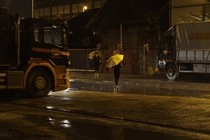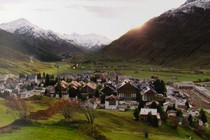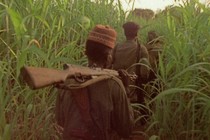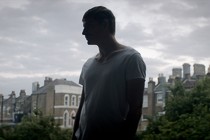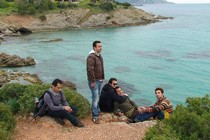The Shelter, the final film in a chance trilogy
- The Shelter, the latest documentary from Swiss Fernand Melgar, in competition in Locarno, shows that the will to make a movie must come from the heart and that true sensitivity can’t be invented

The Shelter [+see also:
trailer
interview: Fernand Melgar
film profile] was awaited with great interest since the very beginning of the Locarno Film Festival; following the success of its predecessor, Special Flight [+see also:
film review
trailer
film profile] (the youth jury first prize and the ecumenical prize at Locarno) which left it a rather heavy legacy to contend with. Although, as Fernand Melgar explained (and as confirmed by his movies), his films don’t aspire to give answers to crisis situations, rather they seek to encourage reflexion. His movies are often marked (despite themselves) by controversy. Certainly the issues he raises are pressing and extremely contemporary but his empathetic and clear gaze leaves no room for doubt as to his intents which are anything but crowd-pleasing. Although he’s in love with Switzerland, the cradle of human rights, Fernand Melgar still remains a free spirit who allows himself the luxury of using his sensitivity to give a voice to those who don’t have it, to “make the citizens of a country that loves reflect”.
The Shelter is once again about immigrants, this time mostly European, about those “second class” citizens who often go unnoticed, particularly in a country like Switzerland which at times is stupefied by its own wealth. Fernand Melgar followed for three months, day after day, a group of precarious migrants before he was able to build up the necessary trust with them to make his movie. The Shelter launches us to the heart of an emergency shelter for the homeless in Lausanne where very night, for long hours, enveloped in the harsh cold these men and women look for shelter. Those guarding the shelter, powerless, are forced every night to deal with the same, terribile ritual of choosing the select few who can enter the bunker (as it’s commonly known by the immigrants themselves) and thus obtain a hot meal and a bed.
Melgar films these social outcasts, these human beings who are just looking to get by, with that perspective which from the outset of his career defines all of his films. By displaying daily rituals (making a bed, buttering a slice of bread...) that we take for granted, but that become so precious once uncertainty has the upper hand, Melgar brings us closer to these men of the shadows who maintain their dignity, who cling to their humanity, at all costs. By avoiding unnecessary paternalism in order to focus instead on cinema’s ability to “open windows onto the world”, The Shelter places us in the face of defeat, the defeat of an entire society incapable of relating to others. A frightened society that sees no solution other than building walls, walls that protect, true, but that at the same time isolate, walls that risk becoming prisons. Melgar’s filmmaking is, as he himself defines it, about anxiety, guilty conscience, filmmaking that puts us face to face with the eternal dilemma of coexistence and of the dangerous tendancy towards marginalization. While Switzerland closes doors, Fernand Melgar, with The Shelter, opens windows, with no anger, certain that his country will once more be able to brandish the weapon that has always set it apart: self-criticism.
The Shelter is produced by Climage and sold worldwide by CAT&Docs.
(Translated from Italian)
Did you enjoy reading this article? Please subscribe to our newsletter to receive more stories like this directly in your inbox.
















